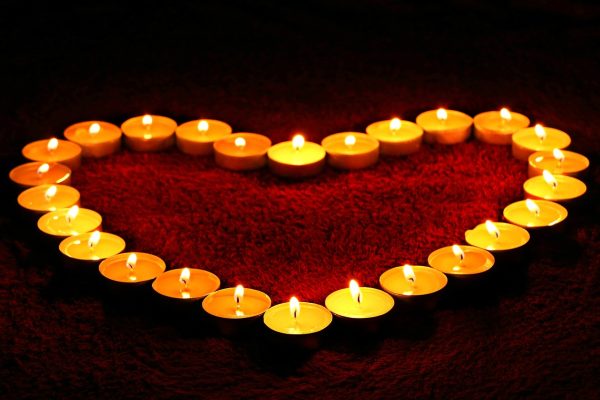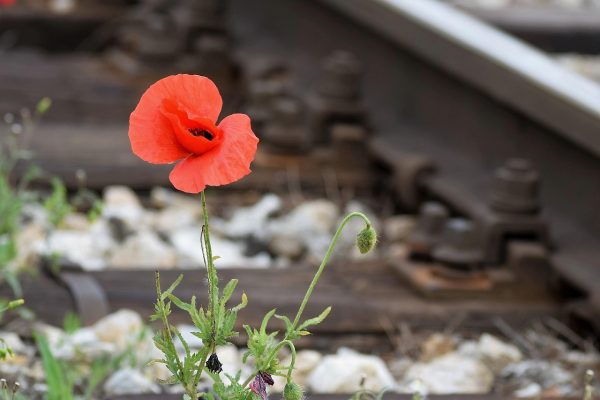The Decision
Before embarking on the journey, take some time to consider why you are making this decision. Have you come to the decision on your own? What are your goals? Are you doing this out of a sense of escape or pressure or a feeling you should? Are you doing this for your own spiritual journey? Take some time to reflect and be certain this is the right step for you. The feelings you have toward this decision will impact the journey itself, so make sure you are in a grounded, prepared state of mind.
In Preparation
You are about to embark on a journey that asks you to surrender to the unknown, to step into the great boundless mystery. Just as important as the journey itself is preparation for what will take place. Here are some suggestions for getting started:
- Surround yourself with sensory wonders. Think of the things you love to look at, smell, and touch and bring them to a central space. Collect objects that hold meaning and create a collection of sorts.
- Especially collect natural beauties like flowers and fruits.
- Make a playlist. Collect tunes that bring some sense of peace and joy and create hours worth of music to listen to.
- Set some intentions for the journey ahead. Write them down, then let them go. You are not in control, and releasing to the experience is an important part of the journey.
On Ingesting
Before ingesting the medicine, make sure you are in a space of letting go and comfort. Upon ingesting, recite the following blessings (brakhot). The first one thanks the universe for creating the fruit of the earth and the second thanks the divine for bringing you to this moment.
בְּרוּכָה אַתְּ יָהּ אֱלֹהֵינוּ רוּחַ הָעוֹלָם, בּוֹרֵאת פְּרִי הָאֲדָמָה
Berukhah At Yah Eloheynu Ruakh Ha’olam, boret pri ha’adamah.
You are blessed, O God, Spirit of the World, who creates the fruit of the ground.
בְּרוּכָה אַתְּ יָהּ אֱלֹהֵינוּ רוּחַ הָעוֹלָם שֶׁהֶחֱיָתְנוּ וְקִיְּמָתְנוּ וְהִגִּיעָתְנוּ לַזְּמָן הַזֶּה
Berukhah At Yah Eloheynu Ruakh Ha’olam, shehekheyatnu, vekimatnu, vehigiyatnu lazeman hazeh.
You are blessed, O God, Spirit of the World, who has kept us in life and sustained us, enabling us to reach this season.
Blessing around Dreaming
While waiting for the medicine to take effect, there are some versus of Torah you can recite. In Tractate Brakhot 55b, there is a ritual described around “turning” a bad dream from bad to good. As we are about to enter a dreamlike state, we honor this tradition and take on some of the ritual. In accordance with this teaching from the Talmud, the journeyer will recite three verses with the word hapakh [turn], and three with the word padah [redeem] and three with the word shalom [peace].
First, bring to mind three spiritual guides in your life—people who you feel completely at home with. Imagine them standing before you. Say out loud, in their presence:
“I have seen a good dream. May the Compassionate One turn it to good; seven times may it be decreed from heaven that it should be good and may it be good.”
Next, recite three verses, like the ones that follow, with the word “turn.” Take some time to study the verses themselves. What is their context? How do the words speak to you?
“You turned for me my mourning into dancing, You loosened my sackcloth and gird me with gladness; (Psalms 30:12)
Then shall… all rejoice together; for I will turn their mourning into joy and will comfort them and make them rejoice from their sorrow; (Jeremiah 31:13)
Nevertheless HaShem your G!d would not listen to Balaam; but HaShem your G!d turned the curse into a blessing for you, because Hashem your G!d loved you. (Deuteronomy 23:6)
Now, three verses with the word “redeem”:
“They have redeemed my soul in peace, so that none came near me; (Psalms 55:19)
And the redeemed of HaShem shall return and come with singing unto Zion, and everlasting joy shall be upon their heads; They shall obtain gladness and joy, and sorrow and sighing shall flee away; (Isaiah 35:10)
The people rescued Yonatan, that he did not die. (1 Samuel 14:45)
Lastly, three verses with the word “peace”:
“Peace, peace, to who is far off and to whom is near, says HaShem that created the fruit of the lips; and I will heal them; (1 Isaiah 57:19)
Peace, peace, be unto you and peace be to your helpers, for your god helps you; (1 Chronicles 12:19)
Thus you shall say: All hail! and peace be both unto you, and peace be to your house, and peace be unto all that you have. (1 Samuel 25:6)
Transitioning Back
Once you feel the journey lightening and yourself returning to the realm of daily life, light a hadvallah candle, or a candle with two wicks. The wicks represent the journey you just walked and the path of returning to daily life. Hold the candle up and recite the following blessing:
בְּרוּכָה אַתְּ אֲדֹנָי אֱלֹהֵינוּ רוּחַ הָעוֹלָם, הַמַּבְדִּילָה בֵּין קֹדֶשׁ לְחוֹל, בֵּין אוֹר לְחֹשֶׁךְ, בֵּין יִשְׂרָאֵל לָעַמִּים: בְּרוּכָה אַתְּ אֲדֹנָי הַמַּבְדִּילָה בֵּין קֹדֶשׁ לְחוֹל
Barukhah At Yah Ruakh Ha-olam, hamavdilah beyn kodesh lekhol beyn or lekhoshekh, beyn Israel la-amim. Barukhah At Yah Ruakh Ha-olam hamavdilah beyn kodesh lekhol.
Blessed are You, THE MANY-NAMED, our God, the sovereign of all worlds, who separates between holy and ordinary, light and dark. Blessed are you, THE INVISIBLE, who separates the holy from the ordinary.
Either leave the candle burning to keep some light of the journey you just walked in your present moments or blow it out. Take some time to write down the thoughts and insights you had on your journey and take care of yourself; you are in a very vulnerable and soft place.












